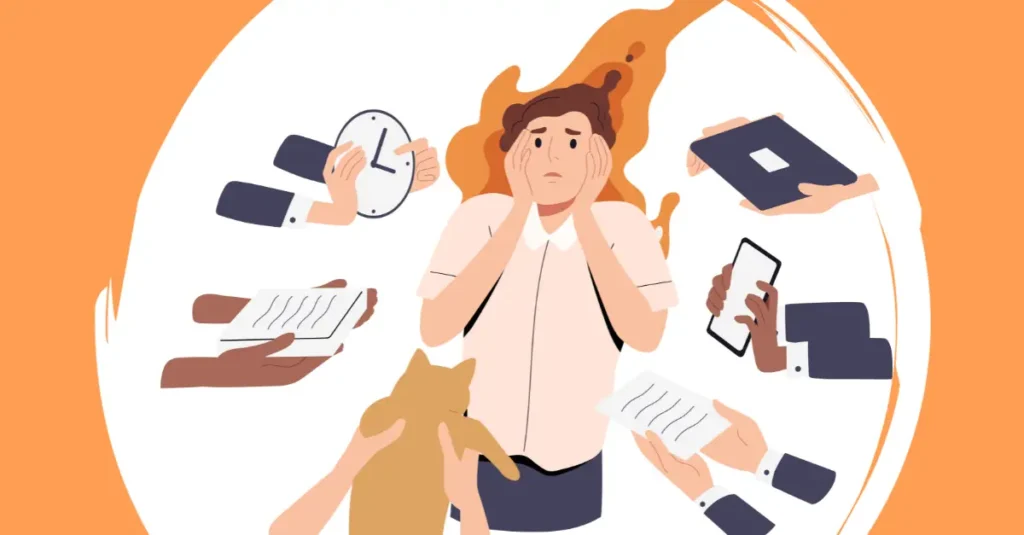Introduction
Have you ever found yourself liking a song simply because everyone else does or supporting a trend you weren’t initially interested in? This is the bandwagon effect, a psychological phenomenon where people adopt behaviors, beliefs, or opinions simply because others are doing so.
The bandwagon effect is deeply rooted in human psychology, and it’s a manifestation of our innate desire to conform. As social creatures, humans are wired to seek connection, approval, and belonging within their groups. This tendency to align ourselves with the majority can influence everything from small decisions—like which TV show to watch—to larger, more consequential choices, such as political affiliations or ethical stances.

The Psychology Behind the Bandwagon Effect
The bandwagon effect is a form of social proof, a concept popularized by psychologist Robert Cialdini in his book Influence: The Psychology of Persuasion (1984). Social proof occurs when we look to the behavior of others to determine what is correct or desirable in uncertain situations. Essentially, when we see a large number of people acting in a particular way, we infer that they must know something we don’t.
This behavior is rooted in evolution. In early human societies, survival often depended on the group. Following the crowd could lead to safer, more advantageous decisions, such as choosing the best hunting grounds or avoiding dangerous situations. However, in the modern world, this instinct can sometimes lead to irrational or herd-like behavior.
In one famous study by Solomon Asch (1951), participants were asked to identify the length of a line compared to others. Even when the correct answer was obvious, many participants conformed to the incorrect answer provided by a group of actors. This study demonstrated the powerful influence of social conformity and the tendency to go along with the majority, even when it conflicts with personal judgment.
Read More- Self-Talk
The Consequences of the Bandwagon Effect
While the bandwagon effect can sometimes lead to positive outcomes—such as promoting collective action for a good cause—it also has its downsides-
- Loss of Individual Judgment- Blindly following the crowd can suppress critical thinking and self-reflection. People may adopt opinions or behaviors that don’t align with their values simply to fit in.
- Spread of Misinformation- The bandwagon effect can accelerate the spread of false information, especially online. When people see others sharing unverified claims, they may feel compelled to do the same, assuming the information must be credible.
- Economic Risks- In financial markets, herd behavior can lead to unsustainable trends, such as housing bubbles or speculative investments, which eventually collapse and cause widespread economic harm.
How to Resist the Bandwagon Effect
Awareness is the first step to resisting the bandwagon effect. Here are some strategies to stay mindful-
- Pause and Reflect- Before adopting a belief or behavior, ask yourself if it aligns with your values and logic. Are you acting out of genuine interest or just following the crowd?
- Seek Diverse Perspectives- Expose yourself to a range of viewpoints to avoid being influenced by a single dominant narrative.
- Verify Information- Before sharing or acting on something popular, take the time to fact-check and assess its credibility.
Conclusion
The bandwagon effect is a fascinating psychological phenomenon that reveals how much our behavior is influenced by others. While it’s a natural part of human social behavior, being mindful of its impact can help us make more authentic and informed choices. By pausing to reflect on our decisions, we can ensure that we’re following our own path, not just the crowd.
References
Asch, S. E. (1951). Effects of group pressure upon the modification and distortion of judgment. Groups, Leadership, and Men, 222–236.
Cialdini, R. B. (1984). Influence: The Psychology of Persuasion. HarperCollins.
Nisbett, R. E., & Ross, L. (1980). Human Inference: Strategies and Shortcomings of Social Judgment. Prentice-Hall.
Simonovits, G., Kezdi, G., & Kardos, P. (2018). The influence of elite endorsement on public opinion during election campaigns. Public Opinion Quarterly, 82(2), 303–326.
Subscribe to PsychUniverse
Get the latest updates and insights.
Join 3,044 other subscribers!
Niwlikar, B. A. (2025, January 27). What is the Bandwagon Effect and 3 Important Ways to Resist It. PsychUniverse. https://psychuniverse.com/bandwagon-effect/




Pingback: True Crime Stories and 6 Interesting Reasons Why You Love Them - PsychUniverse
Pingback: Homepage
Pingback: ais fiber
Pingback: ติดเน็ตบ้านทรู
Pingback: meetaedai
Pingback: SA GAMING
Pingback: depression therapy san diego
Pingback: veneer krabi
Pingback: match tracking
Pingback: vodka nháºp khẩu
Pingback: เว็บตรง สล็อต
Pingback: แทงหวย
Pingback: โคมไฟ
Pingback: เน็ต บ้าน ais
Pingback: เว็บพนันออนไลน์เกาหลี
Pingback: สล็อตเกาหลี
Pingback: buy magic mushrooms usa legit
Pingback: เครื่องพิมพ์วันที่
Pingback: essentials fear of god
Pingback: xem thêm
Pingback: Online Pokies
Pingback: ขายฝาก
Pingback: รับงานเอง